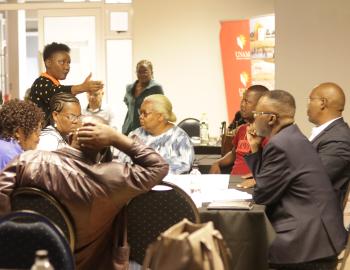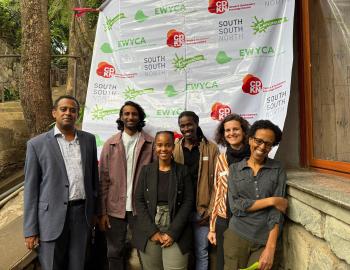Learning Story: Collaborative urban water management bridges knowledge and action in Nepal
Learning Story: Collaborative urban water management bridges knowledge and action in Nepal
This learning story forms part of the CDKN Knowledge for Change series, which reflects on the common challenges, lessons and successes CDKN and its partners have encountered in facilitating evidence-based decision-making to accelerate climate action.
This learning story shares the work done by the Southasia Institute of Advanced Studies (SIAS) over four years (2016–2020) to promote evidence-based action on sustainable water resource management in Dhulikhel, Nepal. Playing the role of knowledge broker, the SIAS team produced, brought together and synthesised knowledge from multiple sources, convened stakeholders to discuss water management challenges, built and enhanced relationships and networks among multiple actors, and contributed to strengthened capacities and action around water issues.
Key messages learned through this work include:
- Facilitating evidence-informed participatory dialogues in the urban water sector in Dhulikhel was shown to build relationships and harness scientific expertise, along with co-developing practical experiential knowledge with stakeholders to enhance local resilience.
- This approach to multi-stakeholder water governance provided an opportunity to address existing conflict related to water supply amongst diverse stakeholder groups, by integrating different voices for more equitable, accepted and owned solutions.
- When involved in these participatory spaces, the Dhulikhel local authority began to appreciate the value of community-based water schemes and dialogue as a crucial complement to physical infrastructural solutions. The municipality also began to see the value of research in better informing its decision-making processes.
- Collaborative piloting of proposed measures to address water challenges helped to bring together evidence from multiple knowledge systems and prioritise particular interventions. Partnerships were also created for their design, testing, funding, implementation and monitoring. This ensured ownership and sustainability, bolstered in many cases by the institutionalisation of these piloted solutions.
Download the learning story here.


